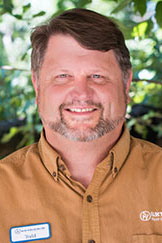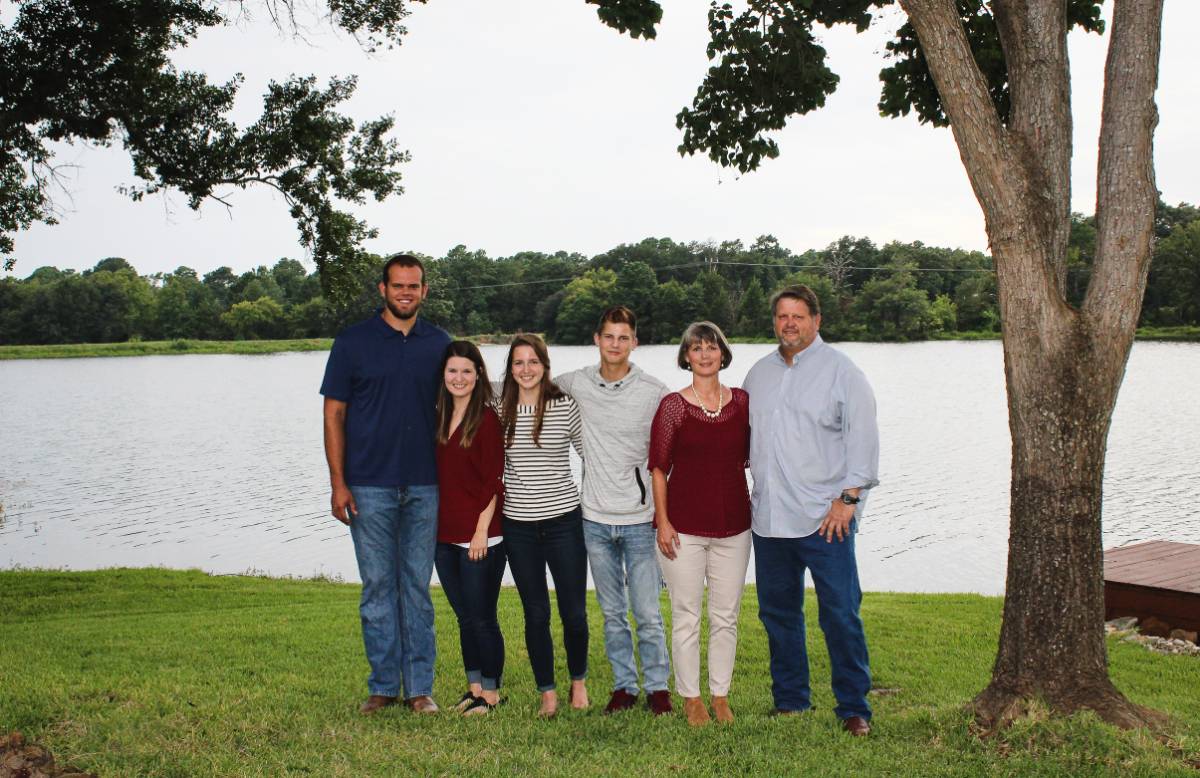It has taken him three tries over a span of nearly three decades, but Todd Witt finally completed his doctorate.
It has taken him three tries over a span of nearly three decades, but Todd Witt finally completed his doctorate.
 Witt, 56, is graduating from Texas Tech University this fall with a Ph.D. in curriculum and instruction with an emphasis in STEM education.
Witt, 56, is graduating from Texas Tech University this fall with a Ph.D. in curriculum and instruction with an emphasis in STEM education.
The father of three was ABD – all but dissertation – in two different doctoral programs at another university before reaching the finish line with the help of the online offerings at Texas Tech's College of Education.
"I would've never finished a Ph.D. if not for the online format," Witt said. "It allowed me to continue being a father and husband and continue working full time. The program at Tech was a perfect fit for me."
Witt last tried to earn a Ph.D. in 1995, enrolling in a distance doctoral program in higher education administration at the University of Mississippi. But he dropped out of the program to focus on work and family after his wife got pregnant.
He quit an earlier attempt, begun in 1989, to earn a Ph.D. in aquatic toxicology from the University of Mississippi after growing concerned about the ethics of research he was doing there.
Witt says the degree is mostly symbolic at this point in his life, but it has led him to a unique career working as an education and outreach manager at Texas Freshwater Fisheries Center, a Texas Parks and Wildlife Department facility in Athens, Texas, where he creates educational experiences for children who tour the facility and its exhibits.
Completing a legacy
Witt said his completing the degree after nearly three decades was primarily a way to carry on his family legacy of education and inspire his three children.
Witt's father, the son of an immigrant, and Witt's mother, a descendant of Comanche chief Quanah Parker, were both first-generation college students and both worked as teacher-coaches in Frenship Independent School District in Wolfforth.
"Really, the driver for me hasn't been some big career path," he said.
"It was so my family could say someone has taken it all the way to that level and finished a Ph.D. I wanted to complete the story of immigrants coming over and raising children who were able to attend college for the first time and then go into the education profession and give back."

Witt would overcome one last obstacle on the path to his degree. Two of his children were diagnosed with severe illnesses while he was working on his dissertation, but Witt managed to help care for them and successfully finish his doctorate.
"Todd shows that committed students with the support of family, friends, fellow students and faculty – plus hard work and grit – can overcome odds to accomplish their dreams," said Walter Smith, Helen DeVitt Jones Professor of Education and Witt's doctoral adviser.
"Sometimes Tech's slogan of 'from here it's possible' seems corny, but on behalf of our program's students from 32 states and territories and five countries, Todd has shown that Tech really has made his dream possible."
Rescuing field trips
Witt researched outdoor, hands-on learning experiences while at Texas Tech. Studies show the style of education, called "experiential learning," promotes reflection and experimentation and helps solidify a lesson, Witt said.
In one project he created a "science camp in a bag," essentially a portable science class for teachers in India.
Witt also examined how field trip experiences can be used to help K-12 students perform better on Texas' standardized tests, State of Texas Assessments of Academic Readiness (STAAR). While working on his Ph.D., Witt redesigned the activities at a non-profit camp in the Dallas-Fort Worth area where he was working called Sky Ranch.
Witt began aligning outdoor activities at the camp with state academic standards so students visiting on field trips were gaining knowledge that would help them on the science portion of STAAR, such as using a zip line to teach physics concepts like gravity, friction and resistance.
The redesign helped turn around a decline in visiting school districts, which had shied away as the emphasis on standardized testing in Texas increased over the years.
"As testing comes along, schools are more accountable for their time, and so they see field trips as a waste of time," he said, "but there's a lot of good you get from that kind of experience that has nothing to do with test scores."
His dissertation examined the impact of the changes at Sky Ranch and found a clear boost in test scores among students who attended.
Now at the Texas Freshwater Fisheries Center, Witt is leading work on a five-year, multimillion-dollar plan to revamp the facility's visitors center and exhibits in a similar fashion, he said.
"That's a win-win," he said. "It ensures children are learning what the center wants to teach, and it translates to success as a school is being held accountable so they can keep coming and doing these kinds of engaging activities."
'Just don't give up'
Witt's advice to doctoral students who may feel they will never finish? Don't give up. It's never too late.
"Sometimes life gets in the way and it postpones the completion of the goal. Just don't give up," Witt said.
"The one thing I lived with from the day I stopped working on my first doctorate was regret that I did not refocus and finish it. I never knew the depth I was feeling that regret until the day I completed the degree and felt the difference."
